Bahrain: Inquiry into Media Freedom and Human Rights in an Exclusive Interview
Sameera Rajab, Minister of State for Information
The freedom of speech is 100% guaranteed through constitutional texts. The new media law includes more details and privileges for journalists and media personnel, it also provides more protection of this freedom.
Interview with Sameera Rajab, Minister of State for Information
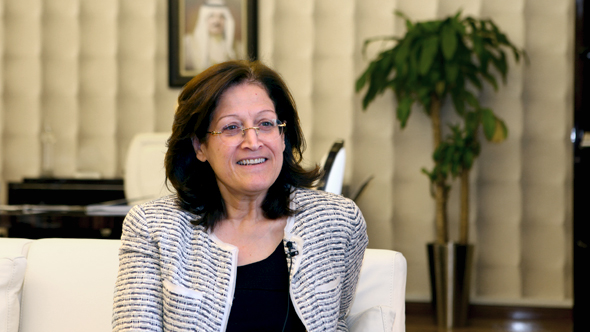
The first question is regarding the second round of national dialogue on March 12th. In your opinion, what has been the progress since 2011 in terms of humans rights and reconciliation?
After the national dialogue in the year 2011 we came out with major constitutional amendments, like giving full authority to the elected parliament, and now the parliament became the main partner in selecting cabinet of ministers, thus it has the right to either accept or refuse the cabinet before it gets officially assigned.
After the national dialogue in the year 2011 we came out with major constitutional amendments, like giving full authority to the elected parliament, and now the parliament became the main partner in selecting cabinet of ministers, thus it has the right to either accept or refuse the cabinet before it gets officially assigned. So the most important result coming out of the national dialogue in 2011 are these major constitutional amendments.
The second important thing was the establishment of the Ministry for human rights in 2012, which is today committed to developing everything related to Human rights in Bahrain.
This includes major developments in the Ministry of Interior, Ministry of Justice, public prosecution and all the institutes that belong to the state that will give the matters of human rights good judicial and practical support.
IAA has finalized the preparations for a contemporary comprehensive media law which boosts the freedom in terms of diversity of mass media. The establishment of supreme media council provides an encouraging legislative organizational environment to create modern media partnership between the government and private sector. Do you really think that these measures have improved the freedom of speech in Bahrain?
The freedom of speech is 100% guaranteed through constitutional texts. The new media law includes more details and privileges for journalists and media personnel, it also provides more protection of this freedom.
The process is going smoothly and I think most of these legislations will be declared within 6 months from now, and then the media sector in Bahrain will step into a new phase. 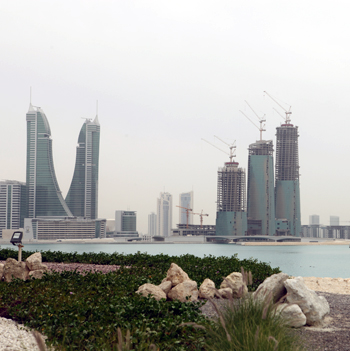
You can have a freedom of speech but the society has to be responsible, so how do you manage this relationship between the freedom of speech and social standards?
We are trying to organize the process of matters related to freedom as there was no interference in organizing the matters of freedom since they started in 2000, so the process needs a bit of organizing while the main responsibility falls on the shoulders of media bodies and journalists, as they are the ones who work on the organization of this topic. So all what we need to do is to maintain security and stability – then the other issues within these freedom will be simple and easy to solve.
There is an ongoing accusation related to human rights breaches in Bahrain where many international media say that Bahrain is a regime, two weeks ago we heard an opposition member saying that there is a holocaust, so how does the Ministry deal with such accusations and claims?
We have direct communication with international media networks; we are trying to prove to the world that these claims are lies and that there is a group of Bahrainis who work against our country. So the life here is completely different from what is portrayed by these groups in front of international media.
Bahrain is known historically to be a secure and peaceful country; it is a state with a diverse range of ethnic and religious groups and cultures. So, it is normal to find differences in such areas, but when certain groups set out to deform the truth they end up brining offense to the entire community. These groups made huge efforts through media to lie about the reality of Bahrain. Now we are trying to communicate the international media to present the truth about what is really happening here on the ground.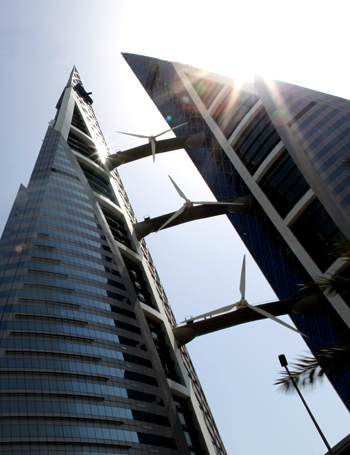
I would like to talk about the Bassiouni commission, the government admitted that they made mistakes by using excessive power, the commission also submitted certain recommendations. What are your thoughts about these recommendations? Have these recommendations had any effect on your strategy?
Bassiouni’s team arrived to Bahrain based on our wish and agreement. It is the first time in our history that the King asks a neutral party to enter the country and evaluate what is really going on. Bahrain accepted the report issued by Prof. Bassiouni, and we pledged to implement all the recommendations mentioned within that report.
Over 80% of those recommendations have already been implemented while the remaining 20% which is to be implemented through the coming legislations including the ones related to media. Major changes have taken place since the Bassiouni report was issued, and there are many changes related to human rights taking place within most of Bahrain’s major ministries. But we are facing a stubborn unreasonable opposition with political goals and agendas. So the situation is pictured in a false way which is definitely not related to the truth.
What is your strategy for the coming two years?
Bahrain will launch a strong media strategy within the coming two years in order to boost the media performance, and thus the media will be the main element in showing the true image of Bahrain. Security in our country is stable.
This island is a tourist destination , with wonderful Bahraini people and we do not have so strict laws, making things easy for whoever wants to enter Bahrain, or work in it or invest in it. So this all shows that we are a well founded state with functioning institutions and we will work to show this true image of our country through the international media.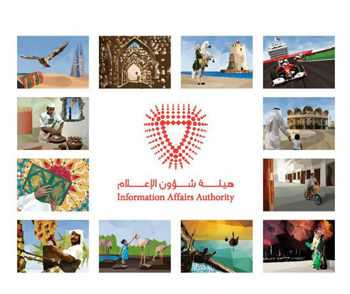
Do you think there is a significant bias against Bahrain in the media?
We are actually suffering from some human rights institutions which have been biased towards Bahrain and are supported by some newspapers and media outlets. They are only interested in one side that serves their agenda and goal, which is to create a negative image of Bahrain.
Our problem is in the foreign media’s unbalanced understanding of the situations in Bahrain. The media is supposed to work honestly, professionally, include all views and investigate what the actual facts are.
If we have conflict in Bahrain, we have to listen to all sides and investigate what the truth is. However, that is not the case with regards to Bahrain. Besides, with social media anybody can write and publish as they wish, the news are nor not always credible. This is a big problem for the region, not only in Bahrain. The media must be careful and follow the right channels to present the facts.
It is the technology that enables asymmetric information so that a relatively small group can influence a large group.
Yes, that is the main problem here in Bahrain. It is a very small group that is supporting and financing a larger group. They are all outsiders and have developed a strong relationship with the media abroad. We are working very hard to resolve this.
What can be done to address the situation?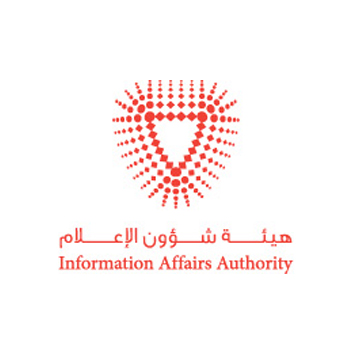
We are currently working on our media outreach. We have done our best so far with being honest and professional with them.
The problem is the media is always looking for the next big story , the story that would make headlines, and a story that would grasp your attention. The government media is usually weaker than the opposition media and people believe the opposition more than the government.
This happens everywhere, not just in Bahrain. We are working on this and we believe we are doing our best. We have a strategy for internal media and external media. We may have started this very late but we have started. We have achieved a few successes in the last six to nine months. We have been measuring this as well through the media.
Do you see progress has polarized society? Is it more divided?
The polarization of society is due to the role the political parties play. Two years later, people have seen the true nature of this movement and are working to return society back to normal. The world has to know that it is not a political issue as much as a sectarian issue. They want their interests to achieve some success politically for sectors not for the whole society.
Do you feel there will be more liberal reforms by the government in the upcoming years and more power brought to the people?
From the national dialogue in 2011 we developed a large constitutional amendment which gives the parliament full authority. Now with the next cabinet, the parliament will be a partner in selecting and appointing the government.
There won’t be any new cabinet appointed by the King only. There must be some agreement with the parliament first to be appointed. So this is what we achieved. Reform has been ongoing. We started in 2001 but reforms take time. It’s better than going through a revolution with all the conflict and blood on the street. We have chosen to go through reform to achieve the change.
So you see Bahrain going towards reform and this is just something that happens along the way?
Yes and yet people fail to see that we are a liberal society. Those people who started on February 14 are theocrats, religious and don’t believe in democracy, human rights or women’s rights. So it’s very strange for people like this to act for democracy. They are just covering their own hidden agenda with this demand.
I want to let the world know that Bahrain is a liberal and democratic society. Bahraini women are practicing their full rights and we don’t have any more problems with women’s equality and empowerment. We have moved forward on these issues. They want to push us back and impose religion on society.
In your opinion, what is the background of these issues?
It all started in 1980 after the Iran Revolution. This group of people established at that time and this is the second generation. We went through more than three stages with these people.
The Iranian agenda was going on in the region and Bahrain was part of that. They have their own plan and agenda for this part of the world. This group belongs to this sector who believes in a theocracy in Iran and they work with a hidden agenda by asking for more democracy in Bahrain.
If we look at Iran in terms of economy, it’s a very difficult life over there.
There’s poverty, hunger, drug addiction; it’s a disaster there.
The question is what does it take for someone to sacrifice his economic liberty and prosperity… ?
This is very difficult to understand and grasp. How parents would sacrifice their own sons in the name of religion. Maybe it sounds strange, but there are those that think this way and would sacrifice them for their beliefs.
They have to create a coalition or form groups in order to succeed.
With religious beliefs, they can find a large group of followers. It is similar to brainwashing, they present their beliefs as something spiritual.